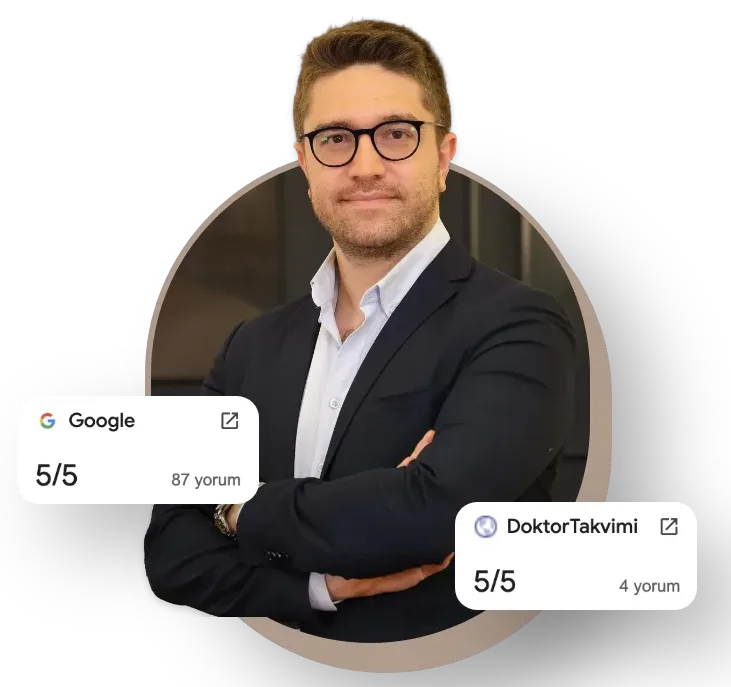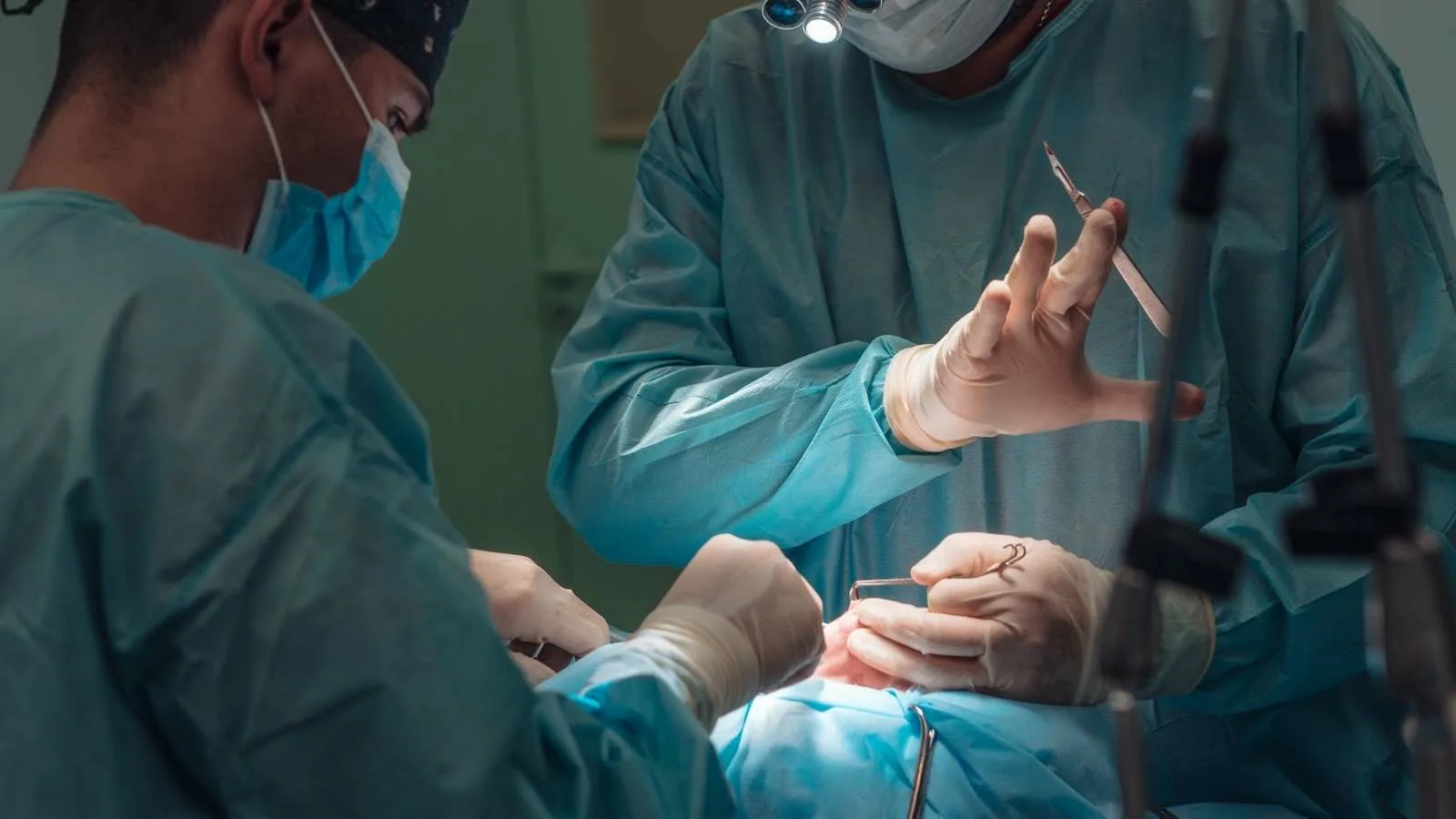Plastic surgery has significant effects on psychology by improving body image and self-esteem. Many patients report enhanced quality of life and confidence after addressing physical concerns through surgical intervention.
Positive psychological effects of plastic surgery include reduced social anxiety and increased personal satisfaction. Patients often feel more comfortable in social interactions and professional settings following their procedures.
However, plastic surgery may also pose psychological risks. Unrealistic expectations or underlying body dysmorphic disorder can lead to dissatisfaction despite successful surgical outcomes. Careful preoperative assessment is essential.
The role of psychological evaluation before plastic surgery is crucial. Identifying mental health conditions and aligning patient expectations with realistic outcomes ensures safe and beneficial results.
How Does Aesthetic Surgery Affect Self-Confidence and Body Image?
One of the most debated aspects of aesthetic surgery is its effect on self-confidence and body image. Especially those who have long felt uncomfortable with their body shape or facial features believe that such discomfort will vanish once they undergo surgery. It’s not surprising that people who try to feel better in daily life through makeup, hairstyling, or clothing choices may turn these efforts into a quest for a more permanent solution. For example, someone who is dissatisfied with their nose might try to conceal its angle in every selfie, or those who try to hide their abdominal area by carefully choosing pants might constantly feel uneasy. Aesthetic surgery can play an important role in resolving these kinds of chronic dissatisfactions.
Research also suggests that the self-confidence of individuals often increases after they have surgery. Rather than viewing this boost as a “profound psychological transformation,” it’s more accurate to see it as “an increase in satisfaction with one’s personal image.” If a person no longer perceives the area that once bothered them in the mirror as problematic, they may feel more at ease. It might become easier for them to express themselves in the workplace or in social settings. For example, a teenager teased because of their nose or an adult whose clothing choices were limited due to abdominal sagging may feel that, through surgery, they have overcome this obstacle and thus move toward a more active lifestyle.
The most critical point in this process, however, is whether one’s expectations are realistic. If the individual’s body image is already negative and their self-esteem is quite low, it might be overly optimistic to think a single surgical procedure will immediately fix everything. Some patients may experience “Did I make a mistake?” worries until they get used to their new look. Thus, any rise in self-confidence depends not only on the success of the operation itself but also on the patient’s psychological readiness and environmental support. Just as important as a successful operation is the feeling of being supported post-surgery, which eases the adaptation process to the noticeable change.
Can Aesthetic Surgery Lead to Improvements in Mental Health?
Studies suggesting that aesthetic surgery has positive effects on mental health usually focus on the decrease in patients’ dissatisfaction with their bodies. When obsessive thoughts or feelings of shame about physical appearance lessen, a person can experience psychological relief. For example, someone who avoids crowds because of a pronounced nose hump or is hesitant to participate in group events because of their breast size may find these reservations easing after surgery. No longer feeling as though they are constantly being watched or judged for a physical imperfection can make social interactions more enjoyable.
Moreover, research shows that patients with high levels of post-surgery satisfaction also feel more comfortable in both their personal and professional lives. Positive changes have been reported in areas such as having a confident stance in job interviews or social gatherings, speaking up in front of groups, and even intimacy in partner relationships. Naturally, this positive impact is not always permanent. The individual’s own psychological dynamics, their expectations from the surgery, and the objective success of the procedure are key factors that determine how enduring any mental health improvement will be.
Alongside positive examples, some patients face unexpected difficulties in the post-operative period. Those who had very high expectations—believing the cost and pain “should be worth it”—but do not deem the results “perfect” may experience heightened anxiety and depressive tendencies. Additionally, if the patient has an underlying psychological disorder (such as obsessive-compulsive disorder or a pronounced anxiety disorder) that they hoped to resolve through aesthetic surgery, these deeper issues may persist regardless of how good the physical outcome is. Therefore, it is frequently emphasized that a psychological evaluation prior to surgery can offer a healthier perspective on the eventual results.
What Are the Risks of Body Dysmorphia After Aesthetic Surgery?
Body dysmorphia (or body dysmorphic disorder) can be described simply as someone magnifying minor flaws in their appearance—flaws so small that others may not even notice them—into a major problem in their own perception. This distortion can reach a level that disrupts the individual’s daily life. For someone dealing with body dysmorphia, aesthetic surgery might seem like a quick “solution,” but in reality, surgery often falls short of resolving the root issue of mental fixation.
Research indicates that a significant number of individuals diagnosed with body dysmorphia look to aesthetic operations for a remedy. Unfortunately, these patients are highly prone to dissatisfaction even after surgery; although a physical “flaw” may be addressed, the perceptual distortion can shift to different body parts. For instance, a person who underwent a rhinoplasty because they were dissatisfied with their nose might next fixate on the shape of their lips or feel that the operated area is still not “perfect,” repeatedly seeking additional procedures.
This cycle can endanger the patient’s mental health and frequently raises legal and ethical concerns. Surgeons often recommend psychological support instead of surgery for those suspected of having body dysmorphia. Multiple interventions can be harmful both physically and mentally to the patient’s bodily integrity. Thus, it is crucial to conduct a preliminary assessment for patients who may be at risk of body dysmorphia before deciding on surgery. Otherwise, the operation might increase dissatisfaction rather than boosting self-esteem.
How Do Social Pressures Influence the Decision to Have Aesthetic Surgery?
Social pressures can significantly shape the decision to undergo aesthetic surgery. Especially with the widespread use of social media, the desire for a “flawless selfie” and a “photogenic profile” causes many people to question the image they see in the mirror. Filtered photos with perfectly smooth skin, flawless noses, and slim, toned bodies can provoke the thought “Why don’t I look like that?” in viewers. When such thoughts recur and become internalized, turning to aesthetic surgery can become inevitable.
Additionally, family and friends may encourage aesthetic interventions. For instance, someone who underwent a rhinoplasty in their close circle and is very satisfied with it might enthusiastically share their positive experience, prompting others to follow suit. In high socioeconomic settings, procedures can become so common that they’re treated as “routine” or just another part of “maintenance.” Much like going to a hair salon or getting a skincare treatment, aesthetic surgeries can come to be viewed as a socially acceptable form of renewal. In such an environment, some individuals might feel obligated to have surgery in order to align with social norms or keep up with their peer group.
Another dimension of social pressure lies in the beauty standards of certain ethnic or cultural contexts. In some regions, “large eyes and a slim facial contour” are considered ideal, while in other areas “fuller curves” are preferred. Such local beauty ideals can fuel the desire to alter one’s physical features. Beneath this desire often lie issues with fully accepting oneself or expectations about gaining a better place in society. Ultimately, the change brought about by surgery goes beyond physical appearance and becomes part of a person’s identity, social relationships, and even cultural affiliation.
Does Aesthetic Surgery Resolve Underlying Psychological Problems?
Aesthetic surgery can indirectly offer psychological relief by alleviating certain discomforts rooted in physical appearance. For instance, someone who has been teased about having protruding ears since childhood may gain confidence after surgery, partially compensating for past negative experiences. However, the critical question here is: “How deep are the individual’s underlying psychological problems, and can they be resolved through physical change?”
Consider, for example, a person with longstanding depression or anxiety disorders who views an aesthetic intervention as a “magic wand” and attributes all their problems to their physical appearance. “If I can just get rid of this nose, my life will completely change,” they might say. When their newly shaped nose does not yield the emotional healing they anticipated, they may experience a deeper collapse. That’s because many mental health conditions require psychotherapy, medication, or other support mechanisms. While correcting a part of the body can provide short-term happiness or excitement, it generally cannot be expected to offer long-lasting treatment.
On the other hand, there are also cases of individuals with trauma or self-confidence issues stemming from past experiences who report “finding themselves” after surgery. The key is accurately assessing the mental framework from which each patient approaches the operation. The general consensus is that aesthetic surgery is not, in itself, a form of therapy, and those with serious psychological difficulties should first address these issues with professional help. Otherwise, post-surgery disappointment, emotional turmoil, and dissatisfaction can become inevitable.
How Important Are Realistic Expectations for Post-Surgery Satisfaction?
When it comes to aesthetic procedures, having realistic expectations is perhaps the single most crucial determinant of success. If someone believes “All my problems will be solved after surgery” or “My life will change completely,” no matter how well the operation goes, they are likely to be dissatisfied with the results. This is because surgery can improve appearance to a certain degree, but it does not grant someone an entirely different identity or personality.
To understand how realistic expectations form, imagine the process most patients undergo: They decide on surgery after being influenced by examples they’ve seen on social media or in their environment, spend hours online looking at “before-and-after” photos, and if possible, research the aesthetic transformation stories of celebrities. All this data can help people set their goals. However, failing to account for personal differences, skin type, genetic background, and variations in recovery can lead to major disappointments if one tries to apply these external examples directly to their own body.
It is therefore vital that surgeons thoroughly inform patients during preoperative consultations and adopt an honest approach by saying things like, “Look, you can expect about this level of improvement from the surgery, but achieving this level of perfection might not be possible.” Also, explaining the risks of the procedure and the potential pain or discomfort during recovery can burst the idealized bubble somewhat, allowing the patient to make a more grounded decision. Consequently, by approaching the changes with greater preparedness and understanding, the patient is more likely to accept the results and benefit from them.
How Does Age Affect the Psychological Impact of Aesthetic Surgery?
To fully comprehend the psychological effects of aesthetic surgery, one must consider the factor of age. Different age groups assign different meanings to aesthetic interventions and have varying expectations post-surgery. Younger individuals often aspire to the “ideal” body proportions they see on social media or the aesthetic appearances of celebrities. Because of this, procedures performed at a very early age can carry very high expectations, which also increase the risk of disappointment. Furthermore, some surgeries are not recommended too early if physical development is incomplete; if someone undergoes an operation before their growth phase ends, they may require additional revisions later, negatively impacting satisfaction.
Middle-aged adults often show interest in procedures like facial rejuvenation, eyelid surgery, or tummy tucks aimed at reducing signs of aging. By this age, one may already have an established career and family life. Therefore, the goals for the surgery can be summarized as “looking younger and more energetic” or “regaining lost vitality.” People in this age group frequently report not only a boost in self-confidence but also a renewed sense of engagement in their social lives. Nonetheless, psychological preparation is still crucial; someone who feels disillusioned by the aging process may not be able to escape the reality of “getting older,” no matter how successful the surgical outcome.
Older adults typically undergo surgery due to a combination of long-standing physical issues (such as sagging eyelids impairing vision) and aesthetic concerns. In some cases, comments like “You’re past the age for that—why bother with surgery?” from those around them can dampen their motivation. Still, many older patients feel more comfortable and better cared for post-surgery. Hence, advanced age alone is not necessarily a negative factor; what matters is overall health, consistency between expectations and outcomes, and adopting a realistic perspective on the benefits that an aesthetic intervention can provide.
Can Aesthetic Surgery Lead to Addiction or Repeated Interventions?
It is known that some patients are not fully satisfied with their results after surgery and even begin to discover new “areas to fix.” Much like someone who gets a tattoo and then seeks a second or third one, aesthetic surgery can sometimes lead to “repeated interventions.” However, this cycle often reflects a type of compulsive behavior rather than a healthy adaptation.
The psychological mechanism typically works as follows: The person sees a certain body part as a problem and strongly believes that correcting it will make them feel much happier and “whole.” During the initial post-surgery phase, satisfaction and excitement are high, but after a while, the gaze shifts to another “flaw.” A continuous sense of dissatisfaction arises, and the belief that the next procedure will fix this feeling grows stronger. This situation can create a vicious cycle that threatens both the individual’s financial resources and physical integrity.
Of course, not every repeated operation signifies addiction. Sometimes a second intervention is needed because of shortcomings in the initial procedure or genuinely changing needs (for example, new sagging after weight gain or loss). But in cases where body dysmorphia or another psychological disorder lies beneath the surface, the number of surgical procedures tends to increase. In such patients, the real treatment should focus on improving mental processes through psychotherapy or medication. Otherwise, even if each operation provides a short-lived sense of relief, the primary problem remains unresolved, and lasting satisfaction is not achieved.
What Are the Long-Term Psychological Effects of Aesthetic Surgery?
The psychological effects of aesthetic surgery may change over time. The short-term excitement or disappointment felt in the early stages can manifest differently in the medium and long run. During the initial phase, there may be swelling, pain, or unanticipated side effects at the surgical site. Some patients who feel unhappy about these issues at first become quite pleased with the outcome once healing is complete. Conversely, others who initially like the result might grow dissatisfied months or years later due to tissue changes, weight fluctuations, or shifts in personal perception.
One of the long-term effects can be changes in social relationships. An individual who experiences increased self-confidence may become more outgoing and more open to novelty in both work and personal life, which is generally recorded as a positive outcome. Some patients may feel more photogenic post-surgery and increase their social media sharing, altering their social engagement. However, this might also feed the desire to be “liked,” laying the groundwork for future interventions.
Emotional stability is a decisive factor in reaping the long-term psychological benefits of surgery. If the person views the procedure as a “nice touch” rather than a “necessity” and did not experience severe body dissatisfaction or trauma beforehand, they tend to accept the results more smoothly. On the other hand, if an individual sees aesthetic surgery as a turning point in their life and expects a “miracle,” they may keep searching for that elusive transformation even years later. Ultimately, long-term effects generally reflect the emotional response during the first few months. The patient’s psychological makeup, level of expectation, and the objective success of the operation are the primary elements of this equation.
How Do Cultural Perceptions Shape the Outcomes of Aesthetic Surgery?
Cultural perceptions play a decisive role in everything from approaching the idea of aesthetic surgery to satisfaction with the results. In some societies, aesthetic interventions are seen as “progressive” and “modern” choices, while in others they are criticized with ethical judgments such as “betraying one’s natural self” or “self-betrayal.” An individual affected by these social judgments may feel guilty about wanting surgery or, conversely, try to conceal their “new self” post-operation.
Cultural norms also define the concept of ideal beauty. For instance, while Western societies generally favor prominent cheekbones and a slim nose, Asian cultures often highlight a smaller, upturned nose, larger eyes, or a V-shaped jawline. In Middle Eastern cultures, rhinoplasty is extremely popular; a large, humped nose is sometimes considered a “distinguished family trait,” yet it can also be something people wish to alter. These differing cultural codes significantly influence how a person perceives themselves after surgery and how those around them react.
Cultural factors also shape the kind of support one may receive from family and friends. In a society where aesthetic surgery is widely accepted as normal, someone who has had a procedure is more likely to receive easy approval and positive feedback, which helps with emotional recovery. On the other hand, in a more conservative community or one that regards such surgery with suspicion, the individual may face exclusion or criticism. In these situations, the aesthetic intervention can combine with feelings of “going against society” or “differentiation,” leading to a complex psychological process.
What Psychological Evaluations Are Recommended Before Surgery?
Many experts state that undergoing a psychological evaluation before an aesthetic operation enhances the surgery’s success and increases patient satisfaction. The goal here is not merely to categorize someone as “fit” or “unfit” for surgery but to understand the mental dynamics that play a role in the decision, thus anticipating potential risks. For example, if you are at risk of body dysmorphia or have a history of severe psychological trauma, whether your expectations from the operation are realistic becomes an especially important question.
During clinical consultations, signs of depression, anxiety disorders, or obsessive tendencies are investigated. The patient’s motivations and expectations for the surgery are also examined in detail: “Am I trying to correct my appearance, or am I using this to compensate for other issues in my life?” This question is perhaps the most critical aspect of a psychological evaluation. If the latter scenario carries more weight, professionals often recommend psychotherapy or counseling before surgery.
This evaluation phase also helps draw the patient’s “mental roadmap” for the post-surgery period. For example, is it realistic to believe, “All my social phobias will disappear with my new nose”? If the surgeon and the patient cannot find common ground here, it may be healthier to postpone or cancel the operation. After all, no matter what physical change the surgeon creates, the patient’s psychological satisfaction can hinge on different factors. Hence, preoperative assessments increase the patient’s mental readiness and aim to minimize potential challenges in the post-surgery phase.
How Do Support Systems Affect Emotional Recovery After Surgery?
Surgery involves not only physical recovery but also emotional and mental healing. The presence of support systems is extremely important in this process. The understanding and moral support provided by family members, friends, or support groups before and after surgery help the patient approach the process more positively. For example, having loved ones assist with post-operative care, dressings, or simply offering encouragement can significantly boost both the speed of recovery and the patient’s satisfaction with the result.
You can think of support systems like the roots of a tree. Just as robust roots protect a tree from harsh weather conditions, a strong and supportive social environment helps individuals more easily cope with any anxiety or stress that might arise after an aesthetic procedure. Some patients who undergo aesthetic surgery might feel temporarily shy or embarrassed due to physical discomfort or changes in appearance. In such cases, patient, positive attitudes from loved ones become a critical driving force in returning to social life.
On the other hand, in a negative or judgmental environment, the individual may feel the need to constantly defend themselves or justify their surgery, overshadowing any potential positive effects and escalating stress and worry. Therefore, if someone is anxious about how their circle will react, connecting with support groups or people with similar experiences can be a good alternative. Especially on social media, communities sharing aesthetic procedure experiences and guiding one another can play an effective role in easing the difficulties faced by those who have had surgery.
Are the Mental Health Benefits Similar Across Different Demographic Groups?
The mental health benefits derived from aesthetic surgery may not manifest at the same level for everyone. Various parameters come into play when we mention a “demographic group,” including age, gender, ethnic origin, socioeconomic status, and even sexual orientation or gender identity. For instance, someone with limited financial resources might make significant monetary sacrifices to afford the procedure, which could greatly heighten their post-operative expectations. Feeling, “I spent all my savings on this; my life has to change completely,” can place them under substantial pressure.
For individuals belonging to ethnic minority groups, cultural beauty perceptions may conflict with mainstream views. People from cultures that naturally celebrate a range of facial shapes or body types may undergo surgery driven by different concerns. Meanwhile, gender identity or sexual orientation can also be factors. For transgender individuals in the process of gender transition, aesthetic interventions may involve not just altering physical appearance but also aligning with their identity, which can deeply impact their mental health.
Differences in psychological benefits can also be observed between male and female patients. Women generally focus on procedures involving the breasts, abdomen, or hips, while men commonly opt for rhinoplasty, gynecomastia surgery, or hair transplants. Societal judgments and ingrained beauty standards influence the expectations of both genders as well as their emotional responses post-surgery. Thus, it’s impossible to speak of a “standard” psychological benefit for everyone; the satisfaction or disappointment experienced after aesthetic surgery gains meaning when considered together with the norms of the demographic group the individual belongs to and their personal history.

Op. Dr. Erman Ak is an internationally experienced specialist known for facial, breast, and body contouring surgeries in the field of aesthetic surgery. With his natural result–oriented surgical philosophy, modern techniques, and artistic vision, he is among the leading names in aesthetic surgery in Türkiye. A graduate of Hacettepe University Faculty of Medicine, Dr. Ak completed his residency at the Istanbul University Çapa Faculty of Medicine, Department of Plastic, Reconstructive and Aesthetic Surgery.
During his training, he received advanced microsurgery education from Prof. Dr. Fu Chan Wei at the Taiwan Chang Gung Memorial Hospital and was awarded the European Aesthetic Plastic Surgery Qualification by the European Board of Plastic Surgery (EBOPRAS). He also conducted advanced studies on facial and breast aesthetics as an ISAPS fellow at the Villa Bella Clinic (Italy) with Prof. Dr. Giovanni and Chiara Botti.
Op. Dr. Erman Ak approaches aesthetic surgery as a personalized art, tailoring each patient’s treatment according to facial proportions, skin structure, and natural aesthetic harmony. His expertise includes deep-plane face and neck lift, lip lift, buccal fat removal (bichectomy), breast augmentation and lifting, abdominoplasty, liposuction, BBL, and mommy makeover. He currently provides safe, natural, and holistic aesthetic treatments using modern techniques in his private clinic in Istanbul.









